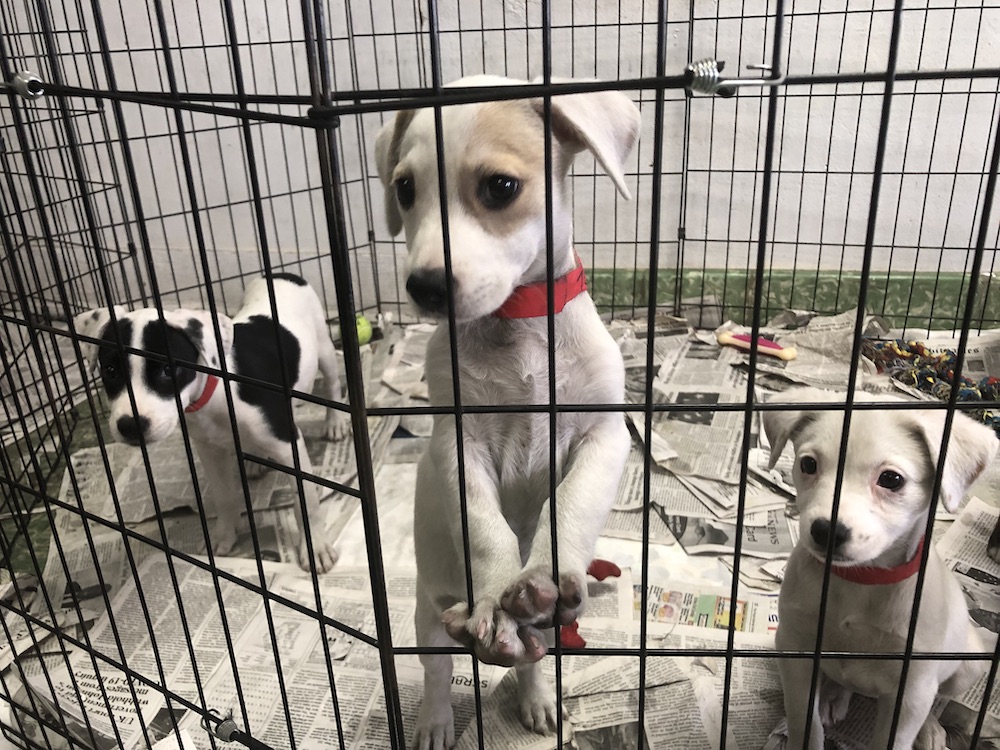
A handful of serious animal lovers have formed a task force to recommend changes in the territory’s animal cruelty and licensing laws and to reassign enforcement to the V.I. Department of Agriculture.
The Source spoke with Sen. Samuel Carrion, Shanna Dickerson, a fierce animal advocate and Sonia Andrew, Carrion’s chief of staff Thursday, about their plans.
Carrion is drafting amendments to current laws. Andrews said they hope to have a document ready to submit to the 35th Legislature by the end of 2023. The task force has been meeting every week or so to formulate a working document.
Dickerson, of Blue Sky Relief Foundation, has worked relentlessly to gather a task force from throughout the territory. She has engaged regularly with most of the animal advocates and has spoken with various administration officials about the issues that need attention.
The other task force members are Carrion, Bethany Bradford from the Ag Department; Emily Weston, St. Croix Animal Welfare Center; Delia Holodensch, Humane Society of St. Thomas; Danny Rodriguez, former VIPD Animal cruelty officer; Katie Nelson, Ruff Start; and, Denise Walker and Ryan Moore from the St. John Animal Care Center.
“The best minds in the U.S. Virgin Islands,” Dickerson said of the members.
Historically, the V.I. Police Department has been responsible for enforcement of the animal-related laws. However, the response to calls from the public about feral, dangerous or neglected animals has been haphazard for decades. The V.I. Police Department often does not have an officer dedicated to responding, so the response is delayed until an officer is available.
Constant reports of dog fighting are heard throughout the territory, but rarely is there any word of an arrest. Emaciated and injured dogs and cats are a common sight but unless they are rescued by a Good Samaritan, they are doomed to a painful death.
Recently, the police report for a vicious, unprovoked dog attack was not available to the victim for over a month – after she had several rushed surgeries on the mainland – and then there was no fine nor reprimand recommended for the dog owners.
The task force recognizes VIPD, perhaps due to the lack of resources, sets a low priority to animal control in the Virgin Islands.
Carrion pointed out that according to the Virgin Islands Code, Title 19, a warden in the Agriculture Department is responsible for all animals throughout the territory. Apparently, there had never been such a position or anything similar, because of the lack of funding, Carrion said. His legislation will call for two animal enforcement officers on St. Croix and two for St. Thomas, who will have the power to investigate and issue citations.
Also within the Agriculture Department is an animal fund and an animal abuse fund with which to channel funds, Carrion said. In the meantime, the task force also is searching for other funding to sustain the positions and other expenses.
In addition to increasing fines and punishment for acts of animal cruelty and neglect, the task force plans to protect livestock and ensure owners are held responsible for their animals.
Many of the local animal welfare organizations raise funds themselves to host free spay/neuter clinics. But, because feral felines are an eternal problem, the task force wants to require licenses and microchipping for cats as well as dogs. Fees for licensing will help with the costs of medical supplies for those procedures.
Training and partnering with other agencies such as the Departments of Justice, Health, Tourism and Education will allow health, education and legal issues to be coordinated.
“There are different things that have to move at the same time,” Carrion said.
Asked why he has chosen to champion this difficult issue, Carrion gave several reasons for his participation.
“Personally, I am an animal lover myself and clearly we can see there is a need. We haven’t dealt with the situation properly. The enforcement component has been missing. The education component has been missing, the funding component has been missing. Some people may think it is not important but I think it is because it is the root cause of all sorts of problems in our society,” he said. “If our children are not taught to take care of animals in a decent and humane way, we see that sometimes these things trigger and continue into domestic violence and other issues in our society.”


